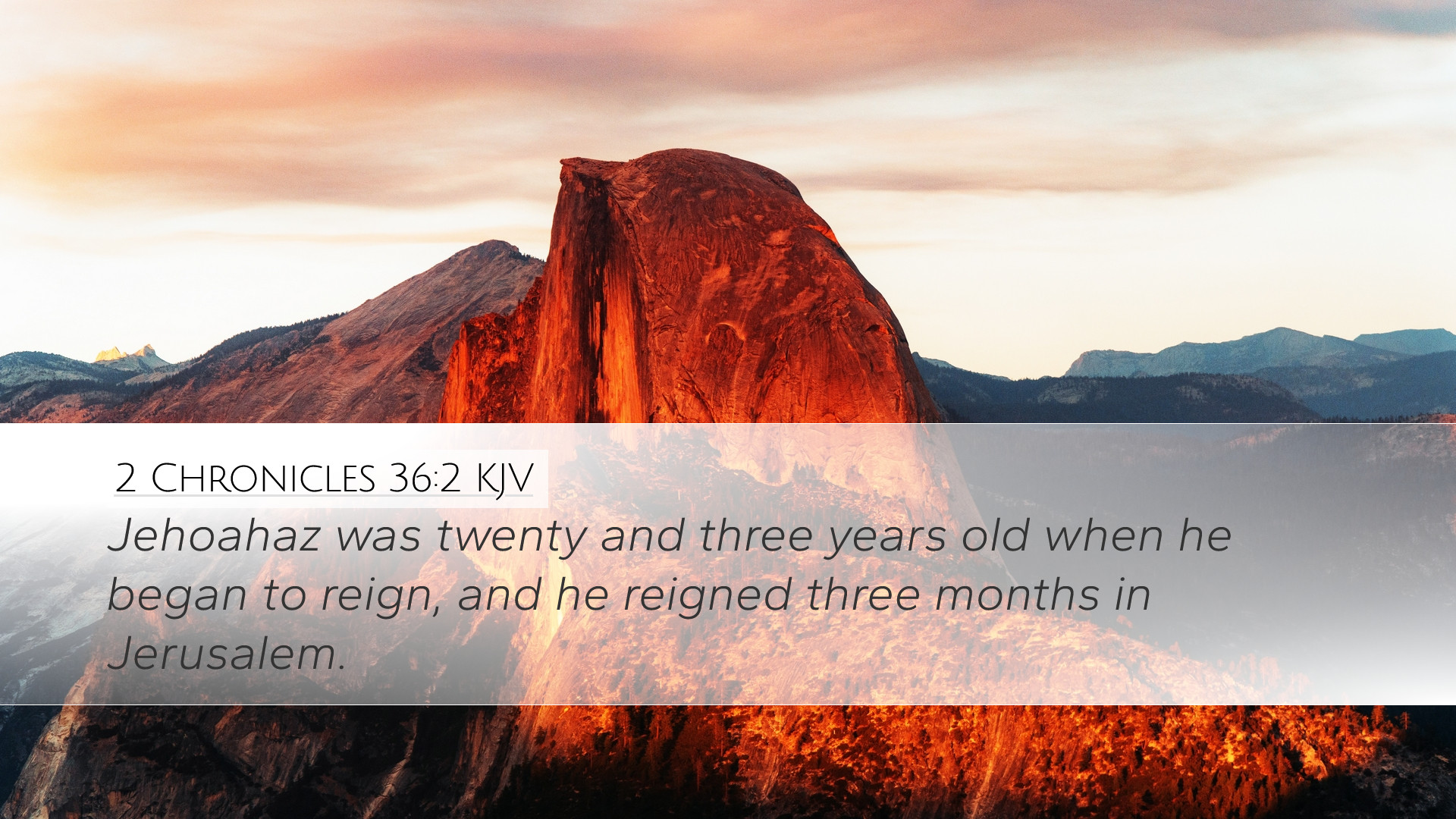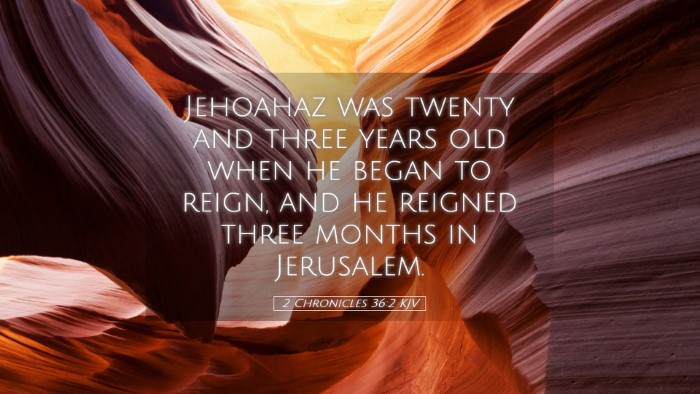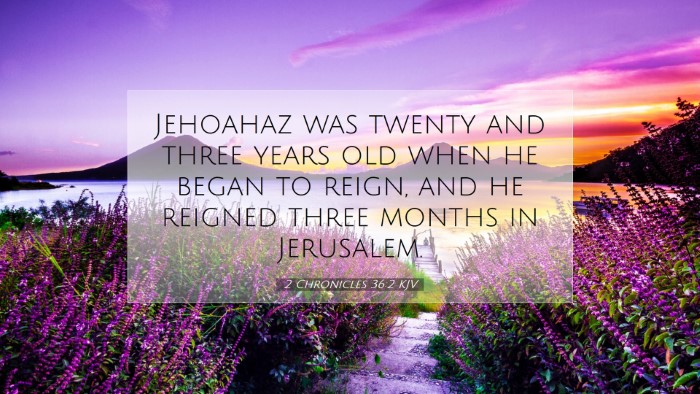Commentary on 2 Chronicles 36:2
Bible Verse: "And Jehoahaz was twenty and three years old when he began to reign, and he reigned three months in Jerusalem." (2 Chronicles 36:2)
Introduction
This brief verse encapsulates the short reign of Jehoahaz, highlighting both his age at ascension and the brevity of his rule. Public domain commentaries provide a wealth of insights that can aid in understanding the historical, theological, and practical contexts of this passage.
Historical Context
The reign of Jehoahaz occurs during a tumultuous period in the history of Israel. Following the reign of his father, Josiah, a good king noted for his religious reforms, Jehoahaz's ascension is marked by instability.
- Matthew Henry: He remarks on the political intrigues at the time, emphasizing that Jehoahaz did not carry on the legacy of his father and instead fell into the traps of power struggles and external pressures.
- Albert Barnes: Barnes notes that the kingdom was weakened both from within due to poor governance and from without due to the looming threat of Babylonian conquest.
Theological Insights
This verse illustrates critical theological themes present in the narratives of the kings of Judah.
- Adam Clarke: Clarke focuses on the idea of succession and the divine judgment that often befalls the rulers who stray from following God's law. Jehoahaz's quick downfall is seen as a testament to God's disfavor when his appointed leaders do not uphold righteousness.
- Matthew Henry: He underscores the concept of divine sovereignty. Jehoahaz’s short reign serves as a warning of the consequences of national sins, reflecting how such leadership can lead nations away from their covenant with God.
Character Analysis of Jehoahaz
Understanding Jehoahaz's character is crucial for interpreting this passage.
- Jehoahaz, at the age of 23, ruled for only three months. This short reign could be indicative of inexperience and the inability to manage the political tumult of his time.
- Albert Barnes: He interprets Jehoahaz's quick deposition as a reflection on his lack of skill and virtue in leadership, with the king being largely ineffective in securing support from his people or the surrounding nations.
- Matthew Henry: Henry highlights the importance of character in leadership, suggesting that Jehoahaz, unlike his father, failed to embrace godliness, which ultimately resulted in his downfall.
Literary Structure and Purpose
This verse serves a particular function within the narrative of 2 Chronicles.
- Adam Clarke: He notes that the mention of Jehoahaz’s age symbolizes the youthful vigor that should ideally be complemented with wisdom and guidance—an irony given the failure resulting from his reign.
- His three-month reign indicates a transition phase in the monarchy of Judah, reflecting both the instability of leadership and the mounting pressures from outside forces such as Egypt and Babylon.
Application for Contemporary Readers
While this verse deals with a historical figure, its implications resonate with modern audiences, particularly spiritual leaders and scholars.
- Matthew Henry: He encourages readers to reflect on their leadership qualities, promoting a life anchored in righteousness and service to God to avoid the pitfalls observed in Jehoahaz's quick downfall.
- Albert Barnes: The brevity of Jehoahaz's reign can serve as a poignant reminder of the importance of stewardship in any position of authority, teaching that one's effectiveness is often measured not just in time, but in the faithfulness and integrity of actions.
Conclusion
2 Chronicles 36:2 offers a rich tapestry of historical, theological, and practical lessons wrapped in the narrative of Jehoahaz’s reign. It serves as an invitation to reflection for those in leadership, urging a commitment to ethical and godly governance amid the complexities and pressures of authority.
Final Thoughts: Jehoahaz's narrative encapsulates a critical lesson in the necessity of following God’s ways intensely and the dire consequences when leaders forsake such paths.


